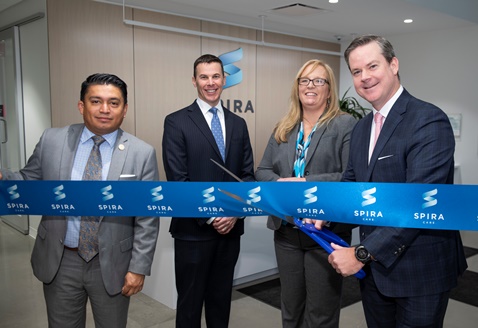by Celia Llopis-Jepsen, Kansas News Service
A private insurer’s 2018 premiums in Kansas ran too high — at least compared to the medical bills it had to pay for customers that year.
That means thousands of Kansans get money back this fall because they got overcharged last year.
Sunflower, a subsidiary of Centene, ran afoul of rules in the Affordable Care Act, or Obamacare. That forced rebates of more than $25 million to nearly 19,000 customers who bought Ambetter individual health plans. (Many received not checks, but credits on their future bills.)
Sunflower is looking to cut premiums for 2020 by more than 8 percent.
In past years, total Kansas rebates under the ACA never topped $5.5 million. But this year Kansas leads the nation. Sunflower’s hefty refund puts the average rebate in the state at more than $1,000, or seven times the national average.
Sunflower and Centene didn’t respond to requests for an interview this week.
Federal law requires insurers to spend a certain proportion of what they collect in premiums — normally at least 80 percent — on their customers’ health care. The rest can go toward the company’s own costs and profits.
When companies miss the mark, they have to give money back, either as direct payments to their customers or reductions to their upcoming premiums. (In the case of employer plans, the rebates can go to the employer to be used in certain ways, such as discounting employee premiums.)
This fall saw massive rebates.
Companies across the country broke the ACA rule, triggering a national record of $1.37 billion in rebates.
In Kansas, they owed more than $27 million back to customers, almost all of which relates to Sunflower’s individual plans. Smaller amounts involved insurers on the small- and large-employer markets.
What caused this year’s high premiums in Kansas and nationally?
Health care economist David Slusky said insurance companies have gradually adjusted to how the Affordable Care Act changed their markets since it became law in 2010. At the same time, corporate taxes are down and the for-profit world is thriving.
“Profit has increased as the market has stabilized,” the University of Kansas economics professor said. “I think that increasing profit has resulted in more rebates. But I wouldn’t read too much into an individual company, especially in an insurance market where there’s so many things out of their control.”
“You’re watching to see what happens to your policyholders,” Slusky said, “but you’re not the patient and you’re not the (health care) provider.”
The Kansas Insurance Department regulates premiums and has asked Sunflower for information about how it landed so far afield of the ACA threshold.
“We’re in discussions … to determine what happened,” said assistant director of health and life Craig Van Aalst. “We’re not the only state that (Centene is) issuing refunds in.”
Sunflower has asked the department for permission to lower its premiums starting in January. Van Aalst said conversations with the company indicate it is trying to correct its rates based on its early experience in Kansas.
A few confounding factors may have made it difficult for Sunflower to get premiums right in 2018, Van Aalst said. It was the company’s first year on the individual market in Kansas, where it focused on the Kansas City area. It joined just as another major insurer, Blue Cross Blue Shield of Kansas City, pulled out.
“It certainly complicates membership prediction,” Van Aalst said.
Additionally, rebates normally reflect a three-year rolling average of premiums and health care spending, but Sunflower’s recent arrival means its Kansas rebates reflect just one year.
The state insurance department signs off on premiums and can only reject them with a legal basis and based on actuarial evidence — the numbers that underpin or contradict a company’s prediction of medical costs. State officials said they haven’t had reason to reject Sunflower’s rate requests.
The federal government posts each company’s actuarial memorandum on a website meant to help hold insurers accountable, but the documents are heavily redacted.
The Affordable Care Act’s 80-20 ratio aims to protect against excessive premium charges. Experts note, however, that the rule isn’t perfect and can come with unintended consequences. Among them, they say, it can create an incentive for higher health care spending. So if an insurance company’s fees are tied to overall medical costs, higher expenses allow bigger premiums and profits.
“That’s the one thing that doesn’t get talked about a lot here,” said Christopher Garmon, a professor of health administration at the University of Missouri-Kansas City. “It may be one reason why costs have not been down as much as we would hope in the last 10 years.”
Celia Llopis-Jepsen reports on consumer health and education for the Kansas News Service. You can follow her on Twitter @Celia_LJ or email her at celia (at) kcur (dot) org. The Kansas News Service is a collaboration of KCUR, Kansas Public Radio, KMUW and High Plains Public Radio focused on the health and well-being of Kansans, their communities and civic life.
Kansas News Service stories and photos may be republished by news media at no cost with proper attribution and a link to ksnewsservice.org.
See more at https://www.kcur.org/post/health-insurers-have-give-back-14-billion-and-kansans-get-fattest-checks.

